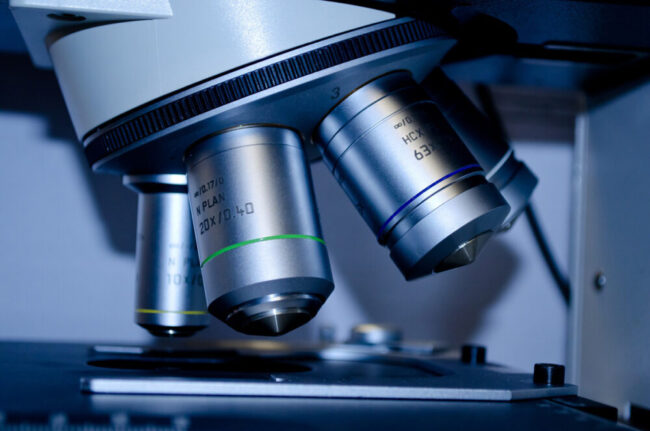Scientific research reveals a lot about the unknown. It aims to uncover and explain how and why certain events occur.
It lets us test, determine, and even recreate each phenomenon. This systematic process allows us to create case studies and understand their workings further.
This is the pillar for various fields of study, such as psychology and chemistry. It helps explain and prove theories. It also helps in finding ways to address problems and find the needed solutions.
Today, we look at what scientific research is and how one can conduct it. Read on to discover more details on the variations used in scientific research.
1. Classifications of Scientific Research
Scientific research comes in different classifications. Each one suits the varying studies and focus points. Some would end up grouped by their data collection methods or by their medium.
Here are some examples.
Clinical Research
One of these classifications is clinical research. This one focuses on the medical field. It helps in improving knowledge regarding diseases and possible treatments for them.
There are various focus points under them, such as prevention or treatment. Some of these would also focus on diagnostics. This is for easier identification of disorders or issues.
Another would be on screening. For this, it is to help in detecting certain health disorders.
Observational Research
Another example is observational research. From its name, you can note that the methods used do not have a degree of control over the variables. Instead, it takes advantage of the random outcomes.
This is a method that leaves the researcher to wait for the result and observe. After that, they take the data and work with the information.
Interventional Research
Yet another example is interventional research. Here, they take on the use of experimentation.
The presence of a control group helps as part of the variables. This way, you can determine the results by changing certain parameters.
2. The Scientific Method
Scientific research uses a systematic set of study methods when acquiring data. This is where the scientific method comes to its full utilization.
This method of knowledge acquisition is the key to the development of science. In this case, the method employs the use of careful observation. Along with it comes applied skepticism on said observation.
While used in various disciplines and fields of study, the steps that it involves stays the same. These steps define the scientific method as it becomes the basis for research. The steps are as follows.
- Question
- Background Research
- Hypothesis
- Experimentation/Testing
- Conclusion
Each of the research classifications uses variations of these steps. Said variations are to help get the results needed.
These define the stages of the study that a researcher follows. In doing so, these act as guides for how to study a certain phenomenon and find the answers needed.
Each of these steps has a certain approach that changes when applied to other study fields. Let’s take a look at each one.
Question
This is the starting point of the whole scientific method. Here, you start formulating a question about something that you witnessed or observed. The questions that surface involve how, what, when, who, which, where, and why?
Formulating these questions can help you take note of the details you need to research. It gives you scope on what to study.
Background Research
This stage is where you draw in more information on the question. This helps in noting a preliminary answer to the question.
Background research also lets you check on other instances of the observation. It helps with the next stage of the study.
Hypothesis Construction
At this point, you create a working theory out of the information gathered. This is the speculative aspect of the scientific method. In this case, you predict the possible outcome.
This is also the phase where you can make predictions. These predictions may come into play when the hypothesis comes up as true during the testing.
While working on the hypothesis, this is where you note the variables at work. This can help you with determining and proving the hypothesis. It also helps in finding which conditions come true.
Experimentation and Testing
This is when the drafted theories come to the test. The type of experiment helps determine the results to see if it proves the hypothesis or it debunks it.
During this phase, you need to have all variables accounted for. This is best done in a controlled environment, such as in a control group.
Fair tests and multiple repetitions allow you to check an experiment’s validity. This way, you can see if the results remain consistent and if there is a trend. You can also use this to determine the variables and conditions needed for a certain effect to come true.
Conclusion
Once you recorded the data and tabulated the results, you can start concluding. Here, you can see whether the hypothesis rang true or whether a different outcome came forth in the process.
From here, you can see a possible looping point for the whole methodology. You can continue with another question and start a new cycle to test a new set of hypotheses.
Once done, you can also take this moment to have the results tabulated and presented to others.
3. Reason for Use
The goal of the scientific method is to describe, explain, and predict. This applies in every field of study.
In psychology, this helps in determining how to influence mental processes and behaviors. Prevention research is another form of medical research, where they focus on preventing disorders.
To aid in such endeavors, you need a platform to work with. Rosalind.bio is a useful research platform that also works well as a data hub.
Scientific Research for Future Developments
With the help of scientific research, we see discoveries and developments. These prove useful in improving our living conditions. It also enlightens us with possible applications of knowledge.













